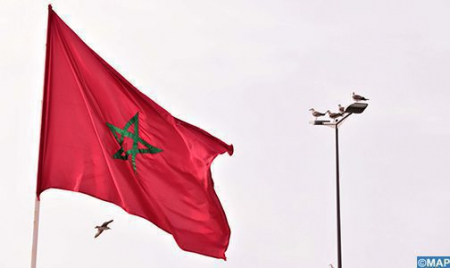Morocco’s Experience in Combating Terrorism and Extremism Highlighted in Tunis
Morocco’s experience in combating terrorism and extremism was highlighted at a regional conference held in Tunis as part of a joint program of the European Union and the Council of Europe to strengthen regional cooperation in the fields of human rights, the rule of law and democracy. During this conference held under the theme “Combating terrorism and violent extremism: Towards a coordinated approach on human rights in the southern Mediterranean region”, Ashraf El Malki, a magistrate at the Presidency of the Public Prosecutor’s Office of the Kingdom, emphasized the importance of the reconciliation program within the framework of the national strategy to combat terrorism, extremism and reintegration, and the programs of the Mohammed VI Foundation for the reintegration of prisoners. He explained that the reconciliation program is part of the efforts of the General Delegation of Prison Administration and Rehabilitation (DGAPR) to create appropriate conditions for the rehabilitation of inmates convicted in cases of extremism and terrorism. This is a scientific approach that complements the multidimensional efforts made in the field of combating terrorism and extremism in the framework of proactive security, spiritual immunization and the fight against vulnerability, he said. Developed and implemented by the DGAPR based on its resources in partnership with the Rabita Mohammadia of Ulemas, this program is based on three axes related to reconciliation with oneself, with the religious text and with society, said El Malki. He noted that this program draws its philosophy from the Royal High Directions calling for the promotion of the values of citizenship, tolerance and moderation, the empowerment of the various segments of Moroccan society and the reform of criminal justice in Morocco, based on citizenship, responsibility and equality of rights, duties and opportunities, in addition to the preservation of the human dignity of detained citizens. For her part, Pilar Morales, head of the office of the Council of Europe in Tunis and Coordinator of the Neighborhood Policy with the Southern Mediterranean, called to support the foundations of regional training to address hate speech, violence and extremism to develop joint policies to combat all forms of terrorism and extremism, in partnership and cooperation with government agencies, institutions and components of civil society. At this conference, organized in partnership with the Tunisian National Commission against Terrorism and the Independent High Authority of Audiovisual, Morales stressed the importance of adopting a system of human rights encompassing all approaches and policies to break with several phenomena such as human trafficking and violence against women and children in the face of all forms of terrorism and extremism. For his part, the Deputy Head of the European Union Mission in Tunisia, Francisco Acosta Soto, called for intensifying efforts to prevent the scourge of terrorism and transnational organized crime and taking the necessary measures to ensure the right to life of everyone and fight against practices related to torture and ill-treatment, among others. Speaking via video conference, the UN Special Rapporteur on the promotion and protection of human rights and fundamental freedoms while countering terrorism, Fionnuala Ní Aolái, spoke of the measures adopted at the international level, in partnership with international bodies and organizations, to combat the phenomenon of terrorism and formulate policies based on respect for human rights, including the protection of children in homes of tension and detention centers. Besides supporting the regional dynamism in the fight and prevention of violent extremism, this conference (June 22-23) aims to lay the foundation for a regional training program for professionals in the fight against terrorism. This meeting also aims to establish training programs for representatives of the Tunisian National Commission for Combating Terrorism, the High Independent Authority of Audiovisual and the organization “No Peace Without Justice”, as well as for representatives of Morocco, Egypt, Jordan, Lebanon, Libya, and experts and representatives of the Council of Europe.

